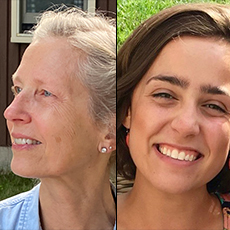Music Therapists’ Insights Regarding a Shift in Practice Orientation
A Clinical Retrospective Self-Study
DOI:
https://doi.org/10.15845/voices.v23i1.3421Palabras clave:
retrospective self-study; reflexive phenomenology; theoretical orientation; music therapists' lived experiencesResumen
This report details a clinical retrospective self-study that we undertook to gain insights into our experiences as an undergraduate practicum student and clinical supervisor. We studied our lived experiences of a shift in practice orientation that we implemented with a child with communication and behavioral challenges. Recognizing a few weeks into treatment that our initial outcome orientation and behavioral approach was not meeting the child’s needs, we abruptly shifted to an experience orientation and music-centered approach, commensurate with Bruscia’s (2014) Integral Thinking and Practice model. Curious as to whether our initial perceptions of this shift would hold up to investigative scrutiny, we undertook this retrospective study to answer the following questions: (1) What factors and circumstances may have precipitated (i.e., activated) the shift in orientation? (2) What factors and circumstances may have enabled (i.e., supported) a shift in orientation? and (3) What individual and collective insights might we gain about our lived experience of the shift relative to integral thinking and practice? Findings from thematic analysis of clinical artifacts inform recommendations aimed at helping music therapists to recognize theoretical influences and feel freedom and confidence to make shifts in practice as warranted. We advance reflexivity as a key strategy to improve clinical services and supervisory practices.

Descargas
Publicado
Cómo citar
Número
Sección
Licencia
Derechos de autor 2023 Susan C. Gardstrom, Marie Reddy Ward

Esta obra está bajo una licencia internacional Creative Commons Atribución 4.0.
Articles published prior to 2019 are subject to the following license, see: https://voices.no/index.php/voices/copyright

